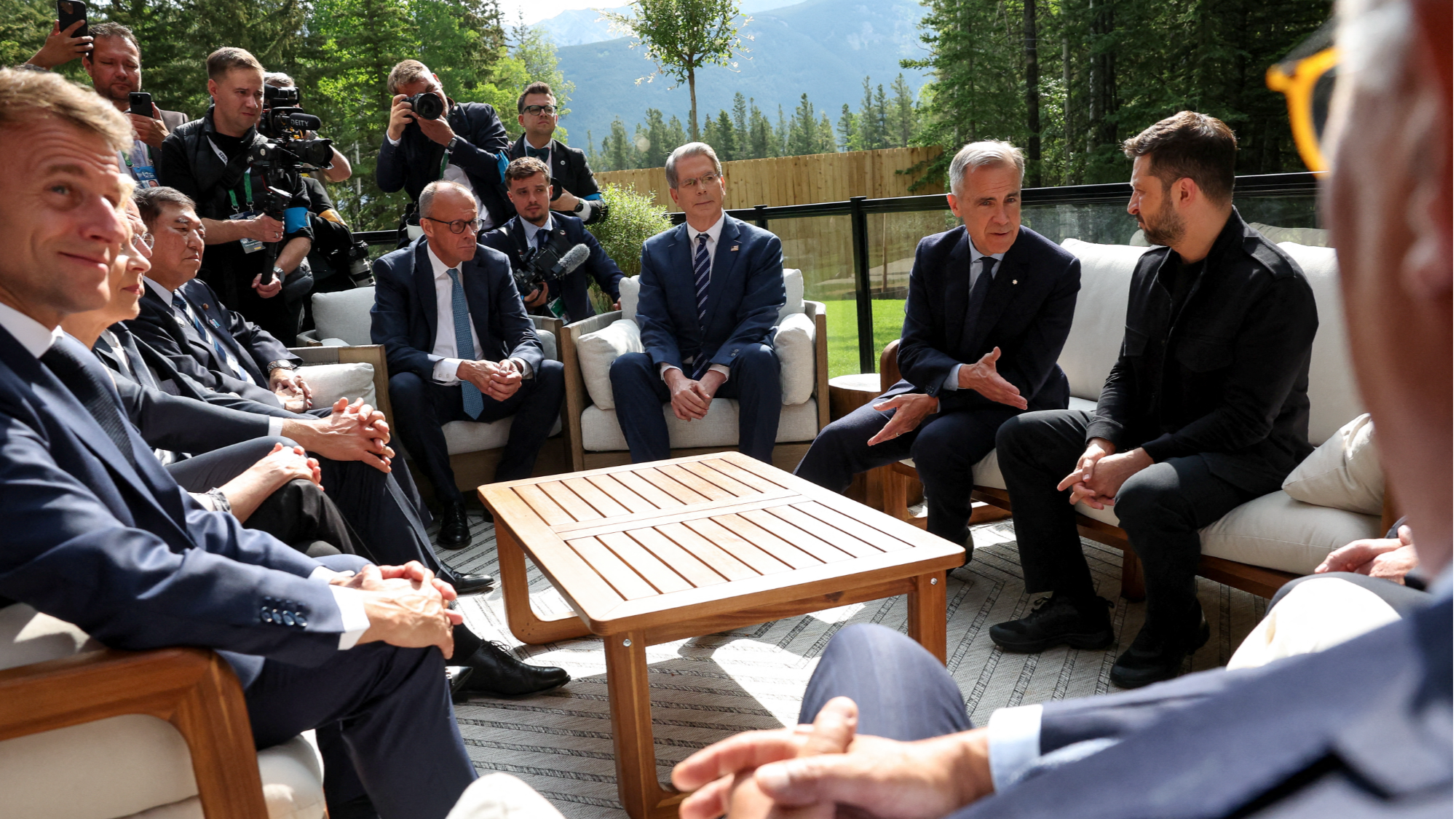
CALGARY, Canada - The Group of Seven (G7) leaders met for the final day of the two-day summit in Kananaskis in the province of Alberta, Canada, on Tuesday without US President Donald Trump.
Trump suddenly left Canada Monday night saying that escalations in the Middle East forced his early exit from the event.
As he left, the summit published a statement on "Recent Developments Between Israel And Iran," urging that the resolution of the Iranian crisis leads to a broader de-escalation of hostilities in the Middle East, including a ceasefire in Gaza.
There are non-G7 leaders in attendance on Tuesday, like Ukraine President Volodymyr Zelensky and Mexican President Claudia Sheinbaum, who now failed to speak with Trump face to face.
ALSO READ: G7 summit kicks off with emerging disagreements among leaders
The remaining G7 leaders will have a working lunch with visiting non-G7 leaders on energy security. In the statement, the G7 leaders said they remain vigilant to the implications of the Iranian crisis for international energy markets and that they will stand ready to coordinate to safeguard market stability.
According to local media, speaking on Air Force One overnight, Trump seemingly upped the price, if Canada wants to participate in the US’ Golden Dome missile defense system, from previous $61 billion to $71 billion.

Asked whether the topic of the 51st state came up during his visit, Trump said, "I think it's a much better deal from Canada, but it's up to them."
Hundreds of protesters took to the streets in downtown Calgary and Banff during the summit, hoping to draw attention from G7 leaders to a variety of issues including a message to Trump against his threats to annex Canada.
READ MORE: G7 summit to focus on global economy, energy security
The G7 summit unveiled its slimmed-down agenda on Sunday, prioritizing discussions on the global economy and energy security.
Originally scheduled to begin over the weekend, the summit has been shortened to two days and officially started on Monday.
The G7 is an informal bloc comprising seven of the world's advanced economies -- Canada, France, Germany, Italy, Japan, Britain, and the United States -- along with the European Union.


